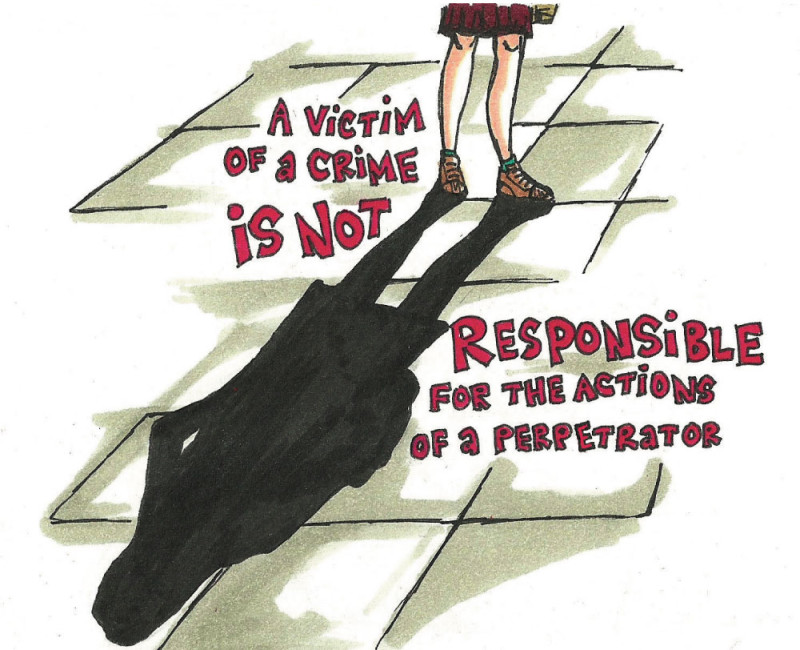
Discussion of sexual assault still needs work
By Chris Adams, August 7, 2014 —
The language we use to discuss sexual violence needs to change. Removing stigma overnight is impossible, but changing the way we discuss sexual assault is a positive step.
On campus, thanks to the Consent Awareness and Sexual Education club and the Students’ Union, security alerts issued by Campus Security now include a disclaimer stating that victims of assault are not responsible for their attack.
A woman was sexually harassed near the pond on West Campus Boulevard last month, with a security threat issued July 31. The new disclaimer was included below the report on the attack. The first line reads, “a victim of a crime is not responsible for the actions of a perpetrator.”
Campus Security can’t patrol every corner of campus at once and they can only act on the reports they receive. But only six per cent of sexual assaults are reported to the police, according to Statistics Canada. Victim-blaming prevents people from telling their stories and seeking justice. A single line of dialogue won’t remove the stigma, but it’s a start.
We need to stop using jargon like “verbal request” when we’re actually talking about aggressive sexual assault. Discussing criminal acts of sexual violence like they’re an unpleasant side effect of being a woman in public is inappropriate and doesn’t provide enough support for victims willing to report their assaults. Discussions of assault should be handled with equal parts compassion and gravity.
Safety precautions alone are ineffectual. If modest clothing and sobriety prevented rape, children would never be assaulted. If having self-defence training prevented assault, there wouldn’t be such a high rate of sexual violence in the army. The long list of actions recommended to avoid sexual assault is not only victim-blaming, it’s ineffective.
The notion of presumed innocence until proven guilty is still important. But false accusations of sexual assault — at two to four per cent of reports — happen no more frequently than false reports of other violent crime, according to the University of Alberta. The criminal nature of sexual assault still means that onus and culpability should be placed on the perpetrator, never on the victim.
Attackers are the threat. Rapists are the danger. Sexual assault is not inevitable — and the words we use to talk about it should reflect that reality.
